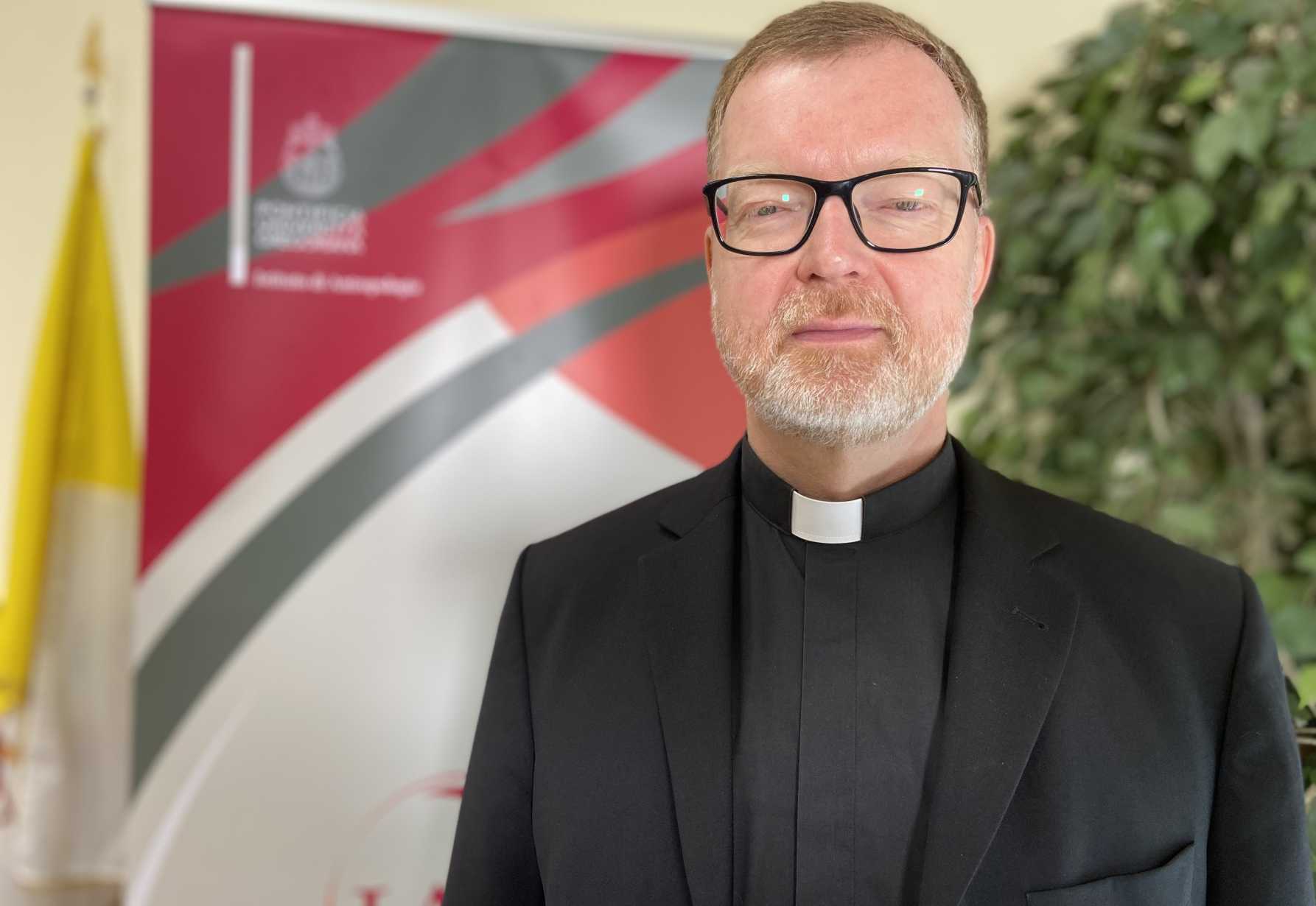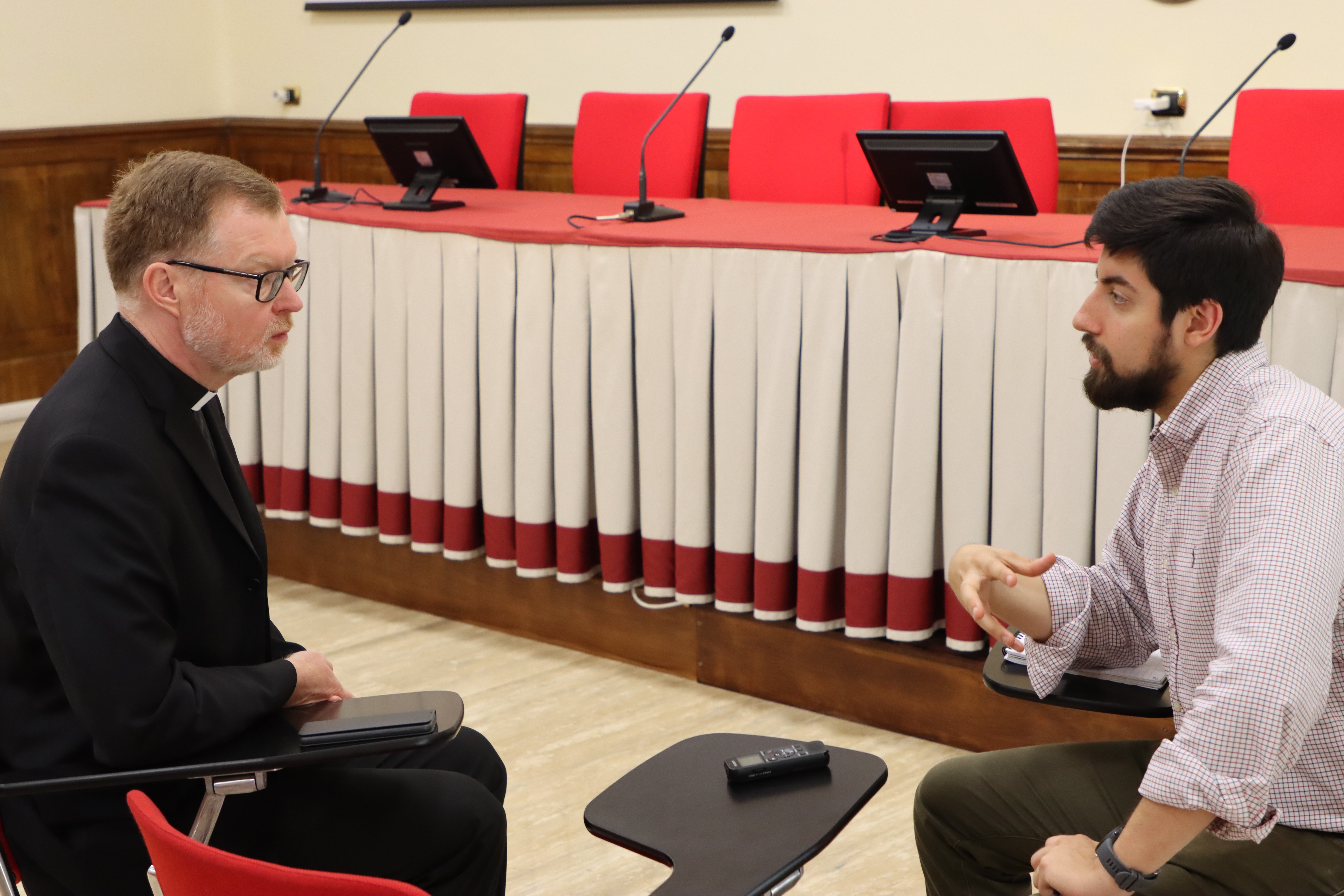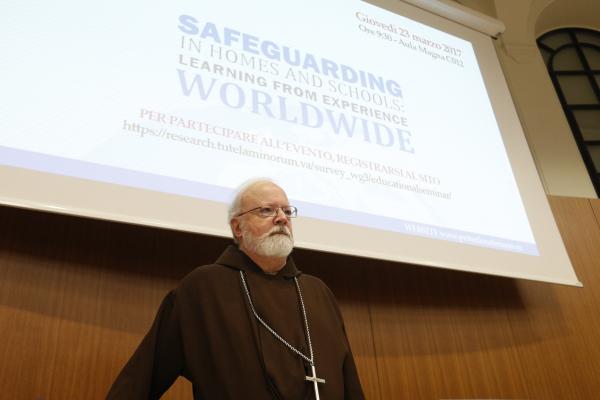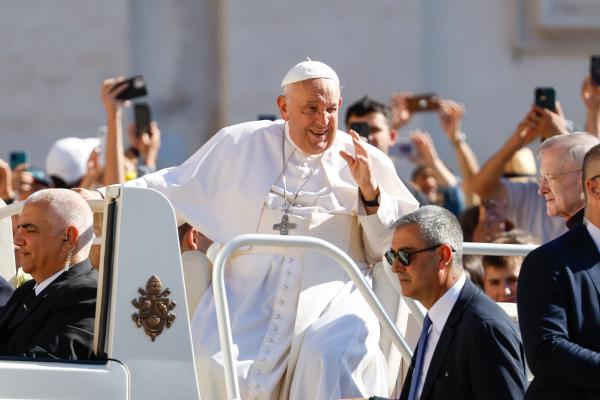US church needs culturally sensitive safeguarding training, expert says
Jesuit Father Hans Zollner, a safeguarding expert, said that due to its diversity, the U.S. church must communicate safeguarding principles in a way that crosses cultural boundaries.
 Justin McLellan
Justin McLellan

Jesuit Father Hans Zollner, president of the Pontifical Gregorian University's Institute of Anthropology: Interdisciplinary Studies on Human Dignity and Care, poses for a photo during a safeguarding conference held at the university in Rome June 18, 2024. (CNS photo/Justin McLellan)
ROME (CNS) -- The diversity of the Catholic Church in the United States requires that it develop a culturally sensitive approach to preventing abuse, a safeguarding expert said.
Although the U.S. church, like the church in Europe, has structures in place to promote safeguarding to a higher degree than churches with less resources, "there are cultural aspects that need to be taken into account," Jesuit Father Hans Zollner, president of the Pontifical Gregorian University's Institute of Anthropology: Interdisciplinary Studies on Human Dignity and Care, said.
"The more diverse a society is and a local church is, the more it needs to respect the different cultures, languages, habits, mentalities that are represented," he told Catholic News Service June 18 on the sidelines of an international safeguarding conference hosted by the institute.
Given the diversity within the U.S. church, it must "be aware that there are different types of (ways) how you establish relationships, how you interact and express yourself, in different parts of the world," Father Zollner said.
According to a 2023 report by the Pew Research Center, 57% of U.S. Catholics are white, non-Hispanic, while 33% are Hispanic, 4% are Asian, 2% are Black and 3% are of another race.

Racial, ethnic and cultural diversity in U.S. churches presents the challenge of communicating the sensitivity around safeguarding in ways that cut through cultural differences, he said.
"When we talk with people from a different background do we really talk the same language in regard to sexuality, to harassment? How do we approach people, how you relate to people, talk about difficult issues?" Father Zollner asked.
He said the church in the United States must make significant effort "so that these ethnicities are more likely to come on board, and so that people don't get the impression of a sort of ‘neo-colonialism’ by just applying the same type of structure, language, or educational programs to people who have a different outlook."
"Law and guidelines are important," he said, "but law does not change the heart. It does not automatically change mentality."
Father Zollner stressed the need for the church "to learn to tell the intention of guidelines in a narrative way. And the narration needs to come in symbols, in language, that can be understood on the ground. "
In many cultures, for example, sexuality is "a complete taboo in the public debate," and, as a result, "people don't have the courage to talk about this and are not educated in family, schools, or religions to do so."
Still, he maintained that the Catholic Church is still a leader in safeguarding, since "no religion and no denomination have made the same strides in safeguarding activity, which means setting up guidelines for all types of institutions, (and) the training of personnel, full-time or volunteers."
But still, the church's implementation of safeguarding practices are "far from perfect and far from consistent," Father Zollner said.
"In many places, we don't implement our own law," for example in addressing cover up of abuse,, he said, which is "an institutional failure of great importance because it undermines the credibility of the Gospel message."
Additionally, he noted that the church often fails to collaborate on safeguarding with other religions, denominations, the state and non-government organizations.
While Father Zollner praised the extensive work already done by the Catholic Church to prevent abuse, "we are the biggest player in this field, so we have a special obligation."



